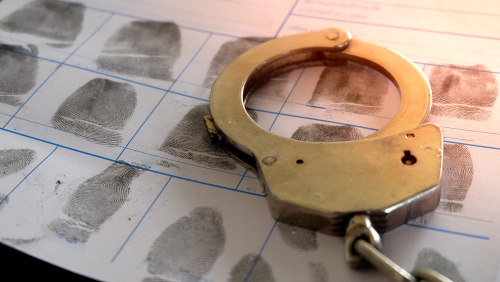Online Forensic Psychology Master’s Degree Programs
A master’s degree in forensic psychology gives you the unique advantage of understanding the intersection of psychology and criminal justice. Graduates of an online forensic psychology program often have deeper insights into both mental health issues and the complexity of criminal behavior, and they are well-positioned to work in victim advocacy, correctional counseling, or as jury and police consultants. They also are frequently well-suited for work in the private or public sector or with the federal government.
Our research team has compiled a list of online forensic psychology master’s programs. All programs listed here have coursework that’s 100% online, though some programs may still require occasional in-person visits. It’s a good idea to check with the school first to confirm its requirements before applying and enrolling.
Editor’s Spotlight: Online Master’s Programs in Forensic Psychology
Arizona State University
ASU’s Master’s in Forensic Science prepares students for careers in law enforcement and mental health. It’s designed to give working professionals in-depth training and specialized coursework in subjects such as criminal law, criminal behavior, the diagnosis and treatment of mental disorders, and legal decision making. While graduates of this master’s program can’t treat patients in clinical settings, alumni are qualified to work within the criminal justice system in law enforcement, corrections, or mental health administration.
Students in this online forensic psychology master’s program must complete 33 credit hours, divided into 11 courses. Students complete 12 credit hours of core classes, followed by courses in statistics and methods, the criminal justice system, and electives. Each student will ultimately complete a capstone project in forensic psychology. Courses are taught by instructors with backgrounds in both psychology and sociology, and the school boasts an excellent advisory program.
This online master’s program has rolling admissions, with new classes beginning every 7.5 weeks. Applicants must possess undergraduate degrees with GPAs of 3.0 or higher, and they must submit the following:
- Graduate admissions application and application fee
- Official transcripts
- Two letters of recommendation
- Proof of English proficiency
- Personal statement
Arizona State University offers more than 200 online degree programs, and each of its online programs is delivered entirely online, and its content is a one-to-one match with its on-campus counterpart. The university is widely recognized for offering high-quality, well-designed courses that help online learners succeed. In fact, ASU reports that 87% of its online graduates find employment within 90 days of graduation. Their success in online learning may be due to the many support services ASU offers its online students. Students have access to textbooks via a digital library and can also connect with online tutoring services, career mentorship, and success coaches. ASU also provides access to the Pitch App, which allows students to connect with their peers through group and individual messaging as well as video chats.
Cost: State residents and nonresidents can expect to pay an estimated $6,424/credit hour or just under $12,000 a year for the 2019-2020 school year at full-time status (nine credit hours/semester) to complete their online master’s degrees. The school offers financial aid and has a number of scholarships available to students.
The Chicago School of Professional Psychology
The online forensic psychology master’s program at The Chicago School of Professional Psychology trains professionals to apply their knowledge of forensic psychology in positions of advocacy or victim assistance, with non-profit organizations, or in policymaking. The Chicago School is committed to having a transformational impact on students and their communities through The Engaged Professional Model of Education, which emphasizes education, innovation, service, and community. This approach trains psychology professionals to think holistically about their profession as well as with an understanding of the complex world around them.
Students in this master’s program can expect to take courses in ethics, diagnostic interviewing, and the treatment of addictive disorders in addition to foundational psychology courses and applied research. The forensic psychology concentration is part of a wider degree in psychology, and student learning emphasizes the principles, theories, and applications of psychology, which are then applied to criminal justice and forensic settings.
The school prides itself on its faculty—who provide mentorship to students in both online and campus settings—and courses are taught by practitioner faculty with real-life experience and professional expertise. The program requires 36 credit hours for completion and is designed to meet the needs of both full- and part-time students. Those studying full time complete the program in a year, while those studying part-time need two years to complete their master’s degrees.
The Chicago School uses a Learning Management System (LMS) for online students called Canvas and offers an online preview of this classroom environment for those considering online degrees. While the bulk of coursework is provided in Canvas via PowerPoint or GoToMeeting, most programs also require a one- to two-hour session per term in which all students meet at the same time for a synchronous virtual residency. Content is offered in dynamic formats, with podcasts and video conferencing available to connect with peers and instructors. The Chicago School provides other resources to its online learners, including career support, a 24/7 hotline for technical help, and SocialCourse—an instant messenger and social networking tool.
Cost: For the 2019-2020 academic year, students can expect to pay $1,198 per credit hour—or $43,128 total—to earn a forensic psychology degree online. Additional fees apply, including a fee for a criminal background check, application fee, and a $195 Experiential Learning Technology Fee. The school offers scholarships, fellowships, and financial aid to eligible students to offset tuition costs.
University of California, Irvine
The Online Master of Legal and Forensic Psychology (MLFP) degree at UC Irvine offers students interested in forensic psychology careers an integrated approach to learning. The school is a collaboration between the Department of Psychological Science and the Department of Criminology, Law, and Society. Students benefit from the expertise of faculty from both departments with an interdisciplinary approach that incorporates psychology and criminal law.
The program teaches the use of psychological principles, theories, and research to better understand legal processes and systems. Graduates are prepared for careers as court liaisons, victim advocates, and research and policy workers within private and public sector organizations. While this program is offered online, the school does require a mandatory weeklong introductory course on campus, typically scheduled in September as the new cohort begins their studies. This required course meets at the UC Irvine campus.
Most students take two years to complete this degree program, and students are required to take 52 credit hours of coursework and a capstone course with a culminating term paper to graduate. The program is divided into core classes, including Psychology & Law, Research Methods, and Legal Reasoning, as well as elective courses with a range of topics such as Children and the Law, Law and Behavior, and Clinical Interviewing and Treatment.
Admission into UC Irvine’s MLFP program is competitive, and only about 68% of applicants are admitted into the program. To apply, a prospective student needs to demonstrate completion of undergraduate studies at a fully accredited university and a minimum GPA of at least 3.0. Additionally, the school requires the following application materials:
- Official transcripts
- Three confidential letters of recommendation
- A statement of purpose
- A personal history statement (required for U.S. citizens only)
- An updated resume
Due to its emphasis on career advancement for working professionals, the school does not require the GRE for admission. Applications are accepted on a rolling basis from March to mid-May, with classes beginning in September.
Cost: For the 2019-2020 academic year, student fees for the Master of Legal and Forensic Psychology program are $4,798 per quarter (Fall, Winter, and Spring) plus a $25 student access fee for an annual expense of $14,469. Online students aren’t required to pay any campus-based fees and are therefore ineligible for on-campus services and facilities.
University of North Dakota
The online forensic psychology master’s program at the University of North Dakota is designed as a part-time option to help working professionals advance their careers in behavioral sciences. Graduates of the program are eligible to work at addiction treatment centers, childcare advocacy agencies, mental health centers, hospitals, prisons, and family, civil, and criminal courts. The program focuses on an in-depth understanding of the legal system, advanced knowledge of psychological theories, and analytical and statistical skills.
Students complete 30 credit hours of study over two years and complete a variety of courses, including:
- Social Psychology: A review of the attitudes that shape social behavior, like stereotyping and prejudice, interpersonal relationships, social cognition,
personality and the self, and group behavior - Psychology & Law: A look at how psychological research and theories are applied to contemporary legal issues
- Behavior Pathology: Studying current research and trends in pathology as it relates to behavior.
The program has earned regional accreditation through the Higher Learning Commission, as well as program-level accreditation by the American Psychological Association (APA).
While UND’s M.A. in Forensic Psychology is mainly online, students are required to complete a one-week study in Grand Forks at the end of the program to meet with instructors and prepare for a final paper and presentation. Beyond the in-person requirement, the online program is on par with its campus equivalent, with the same course materials and faculty teaching the courses. Online students also have access to several support services, including online tutoring, a digital library, tech support, career services, and academic advisors.
To be considered for this online master’s program, prospective students must meet the following application requirements:
- Bachelor’s degree from an accredited U.S. institution with a GPA of 3.0 or higher
- A personal statement
- A 250 to 300-word essay
- Updated resume or curriculum vitae
- Three letters of recommendation
- Demonstrate English language proficiency
Cost: Tuition for North Dakota residents is $438.90/credit hour or $10,533.60 annually for the 2019-2020 academic year. Minnesota residents owe $557.40/credit hour ($13,377.60 annually), and nonresidents owe $658.35/credit hour ($15,800.40 annually). Tuition for international students is $877.80/credit hour ($21,067.20 annually). All students pay an additional $1,524.24 in fees per academic year (or $70.51/credit hour).
Other Online Forensic Psychology Programs
Below are 10 noteworthy schools that offer an online master’s degree in forensic psychology.
To earn Capella’s forensic psychology degree online, students complete 11 courses in both core content and specialization areas, with classes such as Introduction to Psychopathology, Psychology and the Law, Techniques of Forensic Practice, and Theories of Counseling and Psychotherapy. The coursework is designed to help students advance their careers but also meets many doctoral-level prerequisites for students considering earning their Ph.D. and Psy.D. degrees.
Capella also allows students to transfer up to 15 credits from regionally accredited schools and offers a 10% discount for active-duty service members.
Cost: Tuition is $495 per credit
Grand Canyon’s master’s in forensic psychology program is offered through the College of Humanities and Social Sciences and emphasizes crime reduction and criminal rehabilitation. GCU gives students a modern curriculum that focuses on both social and cultural components of psychology as well as the most current understanding of biological, cognitive, and neurological impacts on criminal behavior. Students complete 36 credit hours and a capstone requirement to graduate, and upon graduation, they are usually qualified for careers in law enforcement or government.
Cost: Tuition for the 2019-2020 academic year is $530/credit hour for an estimated $19,116 to complete the program.
The Master of Science in Criminal Justice – Forensic Psychology program at Liberty University gives students an understanding of the real-world applications of forensic psychology in legal and criminal settings. The program is offered on a rolling basis, with eight start times a year. Students complete 36 credit hours in about a year and a half, and there is a mandatory thesis required to graduate.
Liberty allows students to transfer up to 50% of the credits required for this program and offers first responders and members of active-duty law enforcement a 25% tuition discount with additional discounts for military service members.
Cost: $565/credit hour for the 2019-2020 academic year, plus fees and books, for a total sticker price of about $22,504.
NCU’s online forensic psychology program is as flexible as they come, with programs starting every week and a one-on-one learning model that is entirely self-paced. Online students have access to individualized mentorship with their professors. With a total of 30 credit hours required in 10 courses, most students complete the program within 20 months.
NCU offers full scholarships plus an additional $20,000 reward to two new students each year through the You Have What it Takes scholarship. The school also provides discounts for military service members and their spouses with a tuition rate of $1,803/course, for a total savings of over $8,000.
Cost: Tuition for the 2019-2020 academic year is $2,577 per course plus a $110 fee, for a total cost of around $27,320.
NSU’s online master’s in forensic psychology program was designed to meet the educational needs of working professionals, military and law enforcement, and those in rural areas without access to campus equivalents. Students complete 36 semester hours of training plus either a thesis or field experience.
The College of Psychology offers free recorded webinars to prospective students and anyone else interested in learning more about the field of forensic psychology.
Cost: For the 2019-2020 academic year, tuition is $790 per credit hour, plus an additional $530 in fees each semester, including registration and a student service fee.
Purdue’s online master’s in psychology offers five different concentrations to specialize in, including forensic psychology, and prepares students to meet educational requirements for certifications in behavioral analysis or addictions. There are four start dates to choose from each academic year, from January to March, and students must complete between 60 and 75 credit hours to graduate, depending on their concentrations.
Cost: Tuition is $420/credit hour for the 2019-2020 academic year or about $31,500 for the maximum required credits. Discounts are available for international students, Indiana residents, and service members and their spouses.
This online forensic psychology master’s program is designed to be completed in 15 months at a pace of just two courses per 10-week term. Online students have access to academic and career advisors during their studies, and graduates enjoy access to SNHU’s extensive alumni network.
Cost: SNHU charges $627/credit hour for the 2019-2020 academic year plus a $150 graduation fee, for a total price of around $22,500. Servicemembers and their spouses are eligible for up to 25% tuition savings.
Touro’s online forensic psychology program takes just one year to complete, with six different start dates available throughout the year. Students take two courses per term (for six terms) in courses related to psychological theories and methods, and students can choose from four different concentrations, including forensic psychology.
Cost: Touro is $500 per semester credit for the 2019-2020 academic year. Touro has opted to waive its application fee for prospective students and also offers discounts, grants, scholarships, and other financial assistance to eligible students.
The online forensic psychology concentration offered as part of the M.S. in psychology at the University of Louisiana adds courses that expand student knowledge of criminal justice and human behavior. The forensic track includes courses such as Intelligence Testing, Counseling in Criminal Justice, and Sociology of Law for a total of 36 credit hours of study. The school requires an undergraduate GPA of at least 2.75 for admissions eligibility.
Cost: You can expect to pay $500/credit hour for the 2019-2020 academic year, including fees, for an overall sticker price of $18,000.
Walden’s online forensic psychology program offers 10 different areas of concentration to choose from, including Family Violence, Sex Offender Behavior, Cybercrimes, and Police Psychology, giving students more flexibility and choice in their studies. Unique content is available to online students with interactive case studies, podcasts, expert interviews, and an interactive learning community.
Cost: Tuition for the 2019-2020 academic year is $535 per quarter hour plus a $150 technology fee, or $25,680 for the program. Walden allows up to 20 transfer credits for an additional $11,000 in savings.





